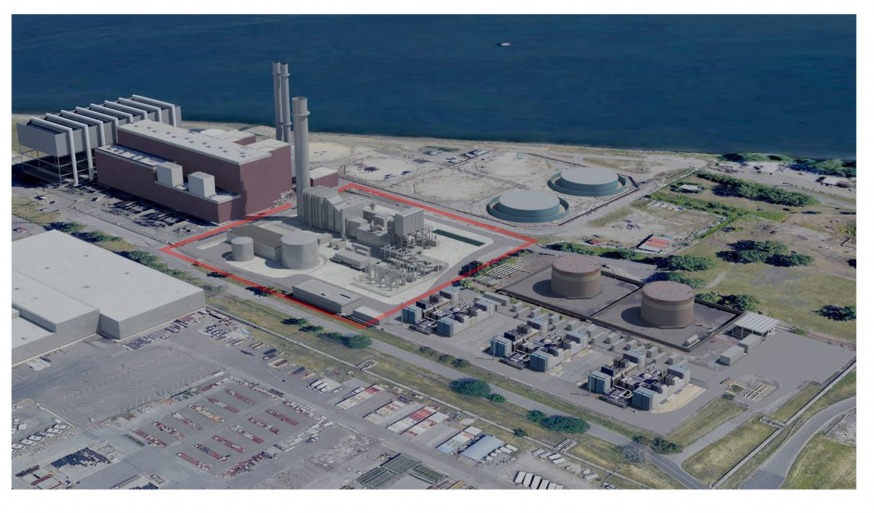
The NRG plant occupies 15 acres within the 300-acre ConEd complex (NRG)
Nov. 29, 2021 By Allie Griffin
NRG, the Houston-based energy company, is refusing to back down on its plans to overhaul its 50-year-old peaker plant in Astoria.
The company said the state’s decision to reject its plan to rebuild its Astoria plant was “short-sighted and politically driven.” Now, it hopes a judge will agree.
NRG Energy has requested an adjudicatory hearing after the New York State Department of Environmental Conservation denied permits sought by the company to replace its 50-year-old plant on 20th Avenue.
“NRG is requesting an adjudicatory hearing related to the New York State Department of Environmental Conservation’s decision to deny an air permit for the Astoria Replacement Project,” Tom Atkins, vice president of development for NRG Energy, said in a statement Friday.
NRG proposed replacing its aging gas and oil-fired turbines with a natural gas-fired plant, but the DEC concluded last month that the plan failed to comply with state climate requirements.
The company maintains that its plan would significantly reduce greenhouse gas emissions coming from its current plant — and that the DEC’s decision was motivated by political interests.
“The DEC’s decision is short-sighted, politically driven, contrary to the plain language of the Climate Leadership and Community Protection Act (CLCPA), as well as both legally and factually flawed,” Atkins said.
Critics of the plan argue that the state should reject the proposal since the plant would still be powered by fossil fuels, noting that natural gas is not clean energy.
NRG, however, has argued that New York City cannot be reliably powered by renewable energy sources alone at this time. In the meantime, the company’s plan would reduce its current carbon footprint at the site with the use of natural gas — as the city moves to a renewable future, it said.
The company added that its peaker plant acts as a backup when other plants — powered by clean energy — are down or unable to produce enough energy to power the city. Therefore, it’s often not in use and emitting pollutants.
“As a backup/standby unit that only operates when there are not enough renewable energy resources available, we will continue to demonstrate the Project is fully consistent with the limits, targets, and goals of the CLCPA and will play a meaningful role in helping New York transition to a zero-carbon electric grid,” Atkins said.
Regardless of the DEC’s decision, NRG will retire the current plant in May 2023 in accordance with the DEC’s energy efficiency laws. The plant will no longer comply with state-level restrictions on nitrogen oxide emissions.






